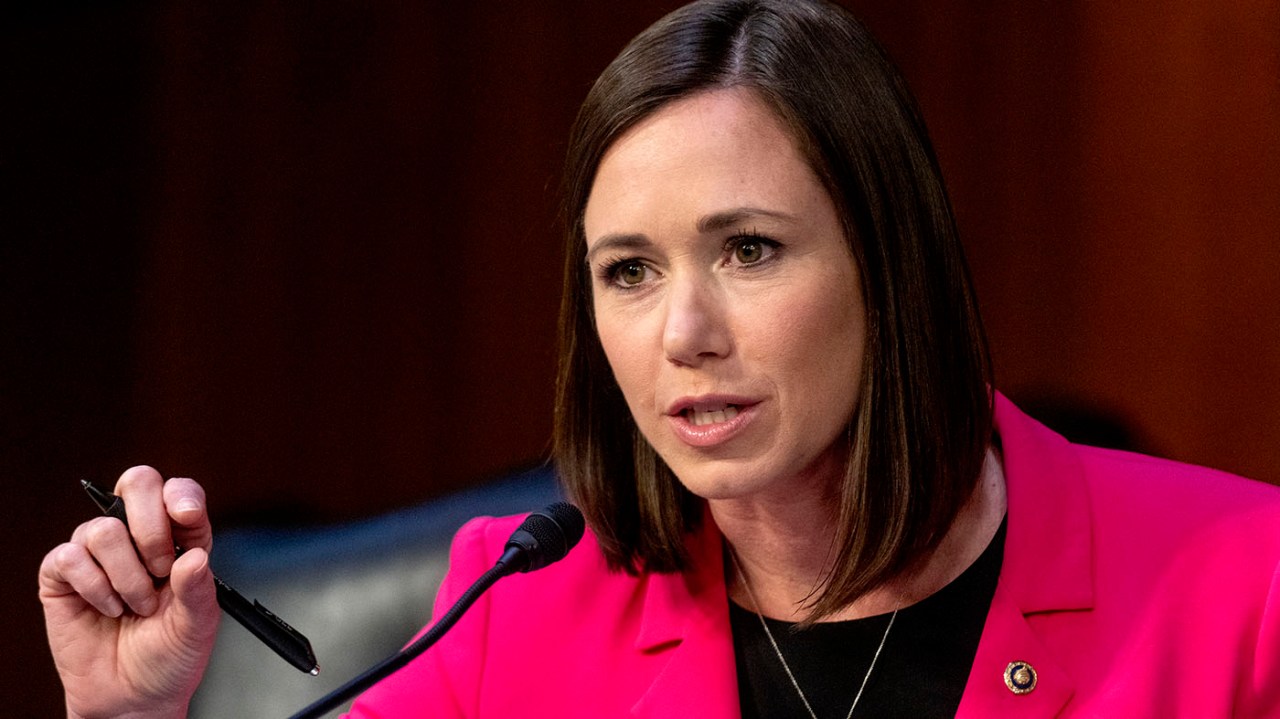
Nine Republican and one Democratic senators flipped their votes from “no” to “aye” and backed a package that includes aid for Ukraine and Israel on Tuesday, helping it advance forward.
All 10 senators had voted against the aid package the chamber passed in February.
The package advanced toward a final vote on Tuesday in an 80-19 procedural vote. Thirty-one Republicans overall voted to advance the package.
The February bill advanced by a 70-29 margin, with only 22 GOP members voting for the blueprint.
The package includes $61 billion for Ukraine, $26 billion for Israel and global humanitarian assistance and $8 billion for allies in the Indo-Pacific. It also includes a series of national security items, headlined by a potential ban of the social media giant TikTok, or at least a forced divestment.
The nine Republicans show shifted their stance were: Sens. Katie Britt (Ala.), Tom Cotton (Ark.), Deb Fischer (Neb.), Lindsey Graham (S.C.), Cindy Hyde-Smith (Miss.), James Lankford (Okla.), Markwayne Mullin (Okla.), Pete Ricketts (Neb.) and Tim Scott (S.C.).
Sen. Peter Welch (D-Vt.) was the lone Democrat to shift his position and vote to end debate after voting against a similar measure two months ago.
Sen. John Thune (R-S.D.), the top GOP vote counter, told The Hill that he expects that figure to stay largely the same heading into the final vote on Tuesday night, which could happen later on Tuesday night.
“There could be in the margins, but it’ll be close to that,” he said.
Some of the members in that group of nine have lauded former President Trump for his help increasing that GOP total, especially for his suggestion to turn a portion of the Ukraine funding into a loan. That fourth bill also includes the REPO Act, which allows the Biden administration to seize billions of dollars in Russians assets being held by U.S. banks and transfer them to Ukraine to help rebuild the country.
“What’s overlooked here is President Trump helped a lot,” Mullin told reporters during the cloture vote. “Without the Lend-Lease being in there [and] the REPO Act … I don’t know if [Speaker Mike Johnson] could have ever moved it.”
“This is the right thing to do, 100 percent, but the issue that you had is … it’s political season. So politics had to go in front of the policy on this one. What messed up last time is the policy went in front of the politics,” Mullin continued. “Our approach this time was to make sure the politics are set, meaning that President Trump was on board, it’s something that can be passable, it’s something that can be explained and that Republicans and Democrats are both comfortable with voting for it.”
Thune agreed that the loan and REPO Act, along with other changes, helped bring some of those members along who held back their support the first time around, saying they were “additive.”
He also pressed that the world has “changed a lot in the last two months”, including in recent weeks after Iran’s attack on Israel and the Ukraine dealing with dwindling munitions in their fight against Russia.
“There have been a number of factors that weigh into that, but each of those probably has a slight [factor],” Thune said.
A number of those nine Republicans confirmed they would also be voting “yes” on final passage, including Graham, Lankford, Mullin and Scott.
As for Welch, he was one of only three Senate Democrats or members who caucus with the majority party to vote against the aid package in February.
Of the 19 members who voted against ending debate, 17 were Republicans, with Sens. Jeff Merkley (R-Ore.) and Bernie Sanders (I-Vt.) once again lining up against it due to the unconditional aid included for Israel.
Copyright 2024 Nexstar Media Inc. All rights reserved. This material may not be published, broadcast, rewritten, or redistributed.

